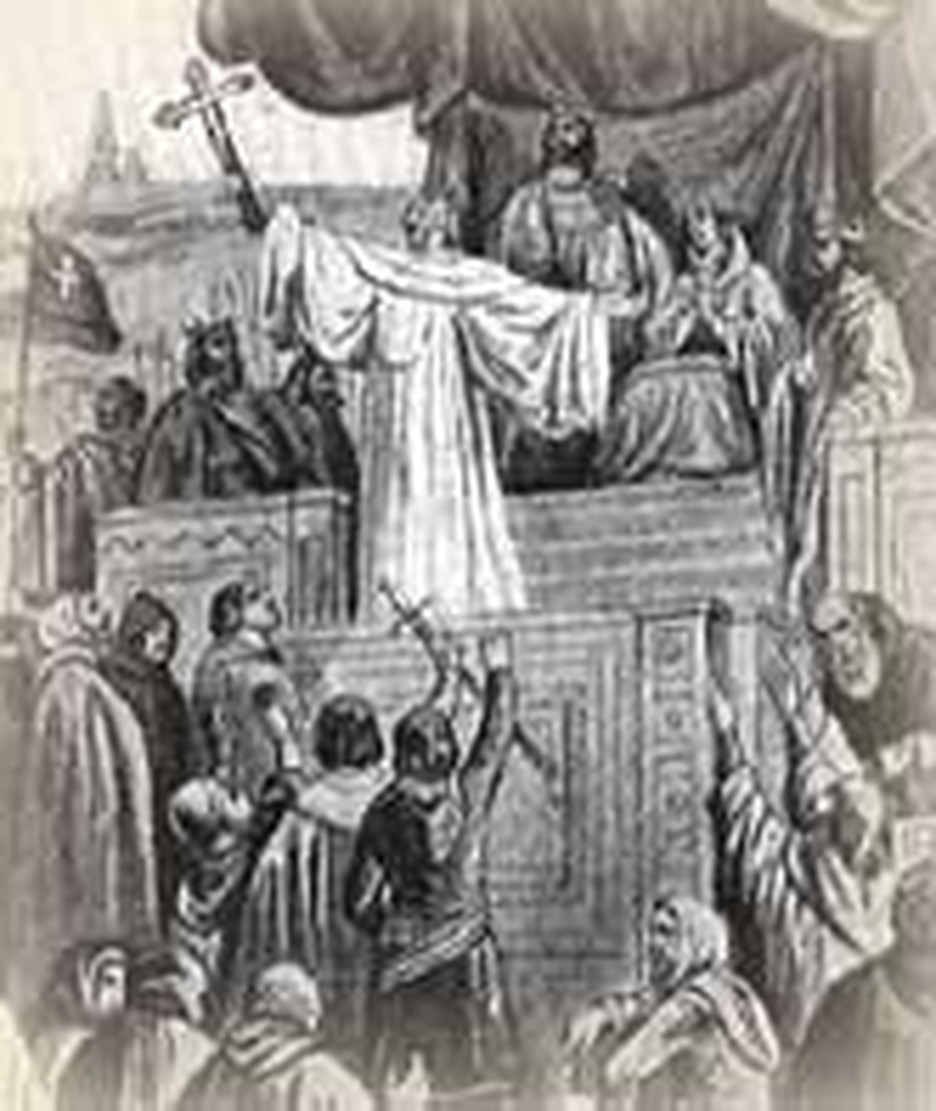
When Pope Urban II summoned Europe to the First Crusade, filthy, barefoot Peter the Hermit urged people to gather their possessions and head east. Whole families joined the "People's Crusade." These were not trained armies, although there were trained soldiers among them.
Months later, after many hardships, adventures and deaths, they arrived at the Bosphorus Strait where the Byzantine Emperor agreed to ferry them over. He wanted them out of the way, because they had created many incidents in their journey and were stealing his people blind. By this time, the French and Germans were quarreling and they split up. The Italians sided with the Germans.
In their raids, this "people's crusade" robbed and killed both Christians and Turks, but especially Christians, who had less protection. The French successfully looted the suburbs of Turkish-controlled Nicea (today's Iznek) and defeated a large Turkish force.
Eager for plunder, the 6,000 men in the German party headed in the same direction. They did not kill Orthodox Christians as the French had, but looted them all the same. Marching past Nicea, they surprised and captured a lightly-defended fort named Xerigordon and thought that they were well-situated on its high hill. From Xerigordon they hoped to raid the surrounding country.
But on this day, September 21, 1096,* the irate Seljuk Turks overcame an ambush the Germans had prepared against them and surrounded the fort. What the Germans had not considered until too late was that the water supply of the fort was outside the walls. According to a contemporary account, in the eight days of siege that followed, the defenders of Xerigordon became so thirsty that they drank their horses blood and one another's urine. Others dug into the damp soil and covered themselves with cool earth. Bishops and priests encouraged them not to despair, but with parched tongues, what could they do?
The defenders asked for terms of surrender. One of their leaders even offered to fight against other crusaders if the Turks would spare him. However, the Turkish terms were stiff: they could either convert to Islam and be sold as slaves--or they could die. Those who converted were sold as slaves to Syria. The rest were massacred.
The French, hearing of the massacre, marched east, spoiling for a fight. However, they walked into a Turkish ambush and the Turks wiped out 10,000 of them in a few hours. 3,000 fled, hotly pursued. In the end, only a few managed to escape to a fortress where they survived-- thanks to the Byzantine Emperor, who listened to Peter's pleas and sent boats to bring them away.
That was the end of Peter's army. All in all, the People's Crusade has to rank as one of the most bizarre events in church history. From a military standpoint, however, the People's Crusade did some good: it caused the Turks to seriously underestimate the more professional fighting force that soon arrived on their shores, the members of the First Crusade.
----------
*Runciman says the Turks arrived not on this day,
but on Michaelmas, September 29.
Bibliography:
- "Ill-fated Crusade of the Poor People." http://historymedren.about.com/library/prm/bl1poorpeople.htm
- Norwich, John Julius. Byzantium, the Decline and Fall. New York: Alfred Knopf, 1996.
- Rees, Dr. Tom. "The Story of the First Crusade."
http://www.brighton73.freeserve.co.uk/firstcrusade/Events/
Other_events/peoples_crusade.htm - Runciman, Steven. A History of the Crusades. Cambridge University Press, 1954.
- Various internet articles.
Last updated July, 2007


